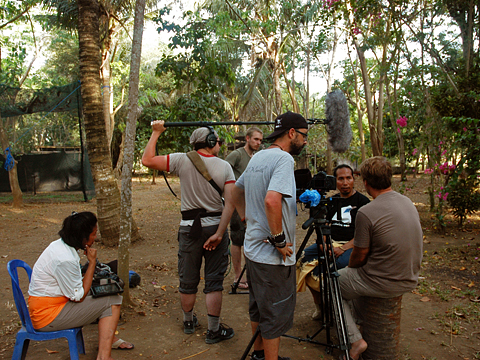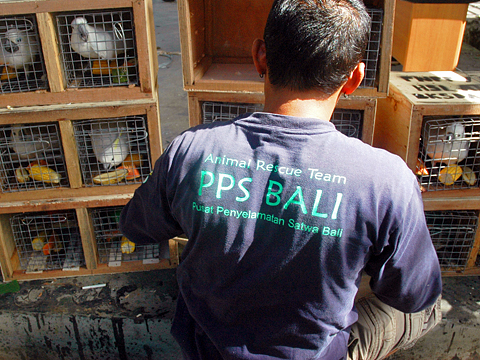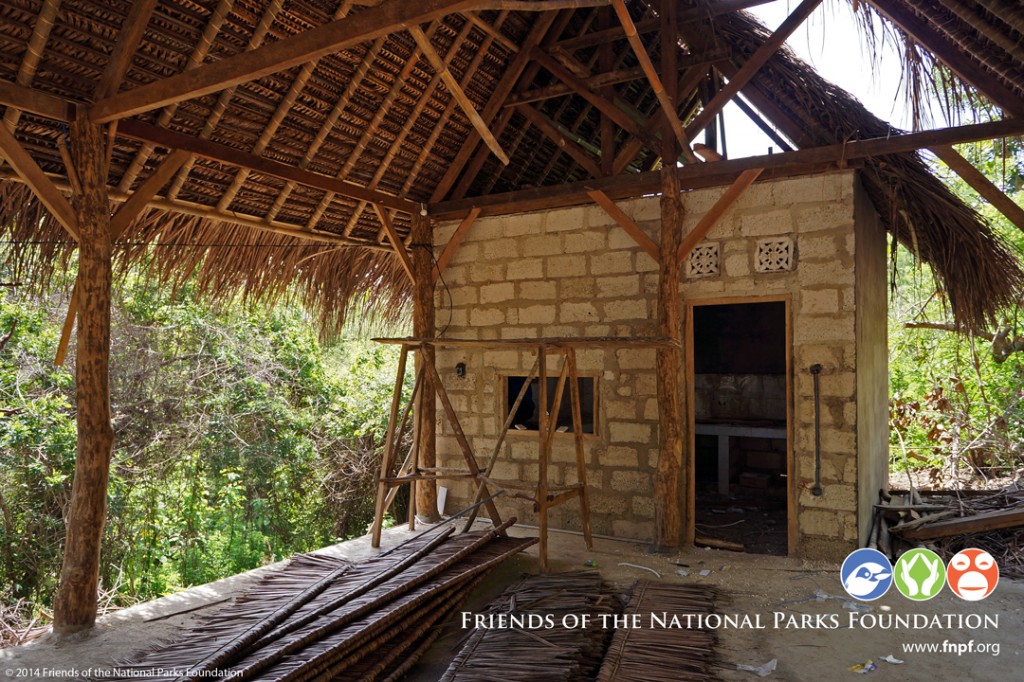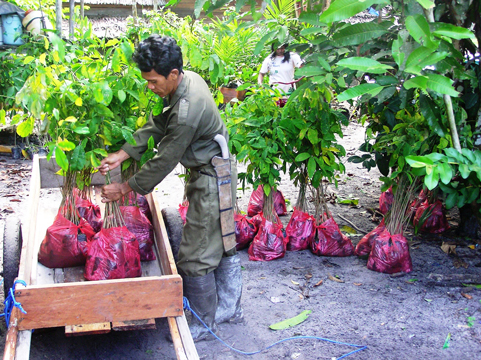It was an amazing year for our conservation and endangered species projects; we hope you enjoyed it as much as we did. We want to share with you some of the great things that happened for Friends of the National Parks Foundation in 2013. It’s a list of some of our biggest achievements, successes and the things we will remember most.
The list:
1. Started work on our new HQ on Nusa Penida
Work begun on the new center in December, and we hope it will be up and running by September – our 17th anniversary. The center will be the base for all our community development, conservation and volunteer activities.
With a bigger and improved center we will be able to expand the programs we run – we have several new projects planned, such as a commercial organic and herb farm, and a model sustainable green business with local farmers.
Want to help make our 17th anniversary celebrations amazing? Drop us a line at info@fnpf.org or donate via our website: https://www.fnpf.org/donate-to-fnpf
In December Zulkifli Hasan, the Minister of Forestry, visited our island sanctuary to release two critically endangered Bali starlings – Bali’s regional mascot. The event shows the support our project has secured from a range of people and agencies, such as the West Bali National Park, Department of Forestry’s Natural Resources Conservation Agency (BKSDA), and Minister.

Film crews from the US’s Born to Explore with Richard Wiese at FNPF's Community Centre on Nusa penida island
In October and September respectively, film crews from the US’s Born to Explore with Richard Wiese and South Africa’s Earth Touch TV visited our bird sanctuary on Nusa Penida. Born to Explore also visited our reforestation project in Kalimantan, Borneo. The first lot of stories will air in February – we will keep you updated.
4. Microfinance project comes to Bali’s Nusa Penida island
This year we established new goat farming microfinance project on Nusa Penida island, aimed at providing farmers with extra income and improving theirstandard of living. In June, we shipped 50 goats to the island which have been loaned to 23 subsistence farmers.
The farmers can breed the goats and eventually sell the offspring for their meat. For each goat the farmers are given they must return a new goat– of the same size and sex – to us in two years’ time.
5. More visitors and volunteers
Word of our projects is spreading across the globe. During 2013 we had more than 300 volunteers from around the world come to help at our center on Nusa Penida.
We hosted lots of diverse visitors, including socially-minded entrepreneurs from Project Getaway, delegates from the Ecosystem Services Partnership Conference, students from a Singapore American school and students from Tokyo’s College of the Environment.
We were also visited by representatives from some of our donors who came from across the globe to see us, including Boeing, Seacology and the International Christian Church Organization.
6. Making the world greener – we planted nearly 100,000 trees
We want to make sure all wild creatures have a place to live. During 2013 we planted 65,000 trees on Nusa Penida island. In Kalimantan, on the island of Borneo, we planted 4000 trees around Tanjung Puting National Park and 30,000 trees in Lamandau River Wildlife Reserve.
We planted another 500 trees as part of other reforestation projects in other parts of Kalimantan – including projects were local school children helped with the planting as part of a conservation education program.
7. Opening of our new turtle guard post on Nusa Penida island
In June we officially opened our new turtle guard post on the island’s Atuh Beach. The post, built with funding from Seacology, will be used by ourselves and local villagers to monitor turtle activities. Turtles are endangered worldwide.
8. Critically endangered chicks hatch on Nusa Penida island
We were leaping for the sky in October, when four tiny healthy Bali starling chicks hatched on our island bird sanctuary. The chicks are the offspring of two pairs of birds that we kept aside for breeding at our center in Ped village. The Bali starling is one of the world’s most endangered birds.
The arrival of the chicks is great news because it shows people interested in the captive breeding of starlings for conservation that you don’t need fancy cages, what is important is how much you care about the birds.
9. Endangered birds released

Translocated 22 Moluccan cockatoos from the rescue center to the Seram Bird Rehabilitation Cente in the Moluccan islands
In April, we released six rescued Javan myna at our Besikalung Wildlife Sanctuary in central Bali, and a month later we set free, an endangered Changeable Hawk-eagle, from our wildlife rescue center, near the island’s Mt Batukaru.
In July, 22 Moluccan cockatoos from the rescue center were translocated to the Seram Bird Rehabilitation Cente in the Moluccan islands. In November, five Javan green peafowl from the rescue center set free in East Java’s Alas Purwo National Park.
Our wildlife rescue center in central Bali – one of only seven such centers in Indonesia – provides a vital link in the process of returning distressed wildlife to their natural habitat. Thanks to the Humane Society International (Australia) for funding all of the center’s running costs.
10. Cows, compost and endangered birds
For the last few years we have been using Bali cows to produce high quality manure for compost, which is in turn used to nourish seedlings in our reforestation nursery. These seedlings will one day be planted to restore some of Nusa Penida’s forests, and these trees will eventually provide food and shelter for the island’s birds. We currently have two cows we are using to produce manure, in 2014 we hope to increase this number.
We would like to thank all our donors, volunteer and friends – and of course our own staff team – who have helped us this far. We are ready for an exciting 2014.









